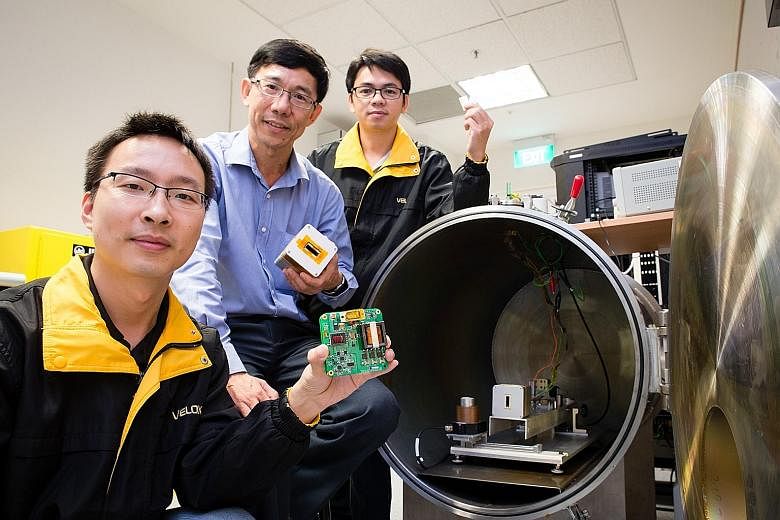A Singapore satellite will be launched from the International Space Station (ISS) for the first time next year, to orbit earth 400km above sea level.
Nanyang Technological University (NTU) and Japan's Kyushu Institute of Technology (Kyutech) collaborated on the 2kg nanosatellite, which will be delivered to the ISS by Japan's national aerospace agency.
The satellite will test three state-of-the-art systems developed by the two institutions.
One is a micro-propulsion system by NTU which uses pulses of plasma to generate thrust. The NTU team estimates that the system can keep the nanosatellite in space for up to six months, about twice as long as the usual three-month flight time for such satellites.
Associate Professor Low Kay Soon, director of NTU's Satellite Research Centre, said: "This new system will be a game-changer for small satellite systems.
"Such projects usually have a modest budget and insufficient space to mount the conventional thrusters used by bigger satellites to maintain altitude."
The nanosatellite will also be used to test a Kyutech wireless communication system that taps on affordable Wi-Fi technology commonly used in mobile devices and routers.
If successful, future satellite missions could use this wireless technology to help the satellite's different systems communicate with one another, reducing the need for wires in the satellite.
The NTU-Kyutech nanosatellite, called Aoba Velox-III, will also test the durability of commercial, off- the-shelf microprocessors in space.
Professor Mengu Cho, director of Kyutech's Laboratory of Spacecraft Environment Interaction Engineering, said it partnered NTU because of the latter's satellite expertise, "demonstrated by its successful satellite missions and world-class satellite research facility".
The Aoba Velox-III will be NTU's seventh satellite project. Other projects include a 135kg microsatellite for climate research funded by the Economic Development Board, and a 12kg nanosatellite, both of which are slated to be launched by the end of this year.

